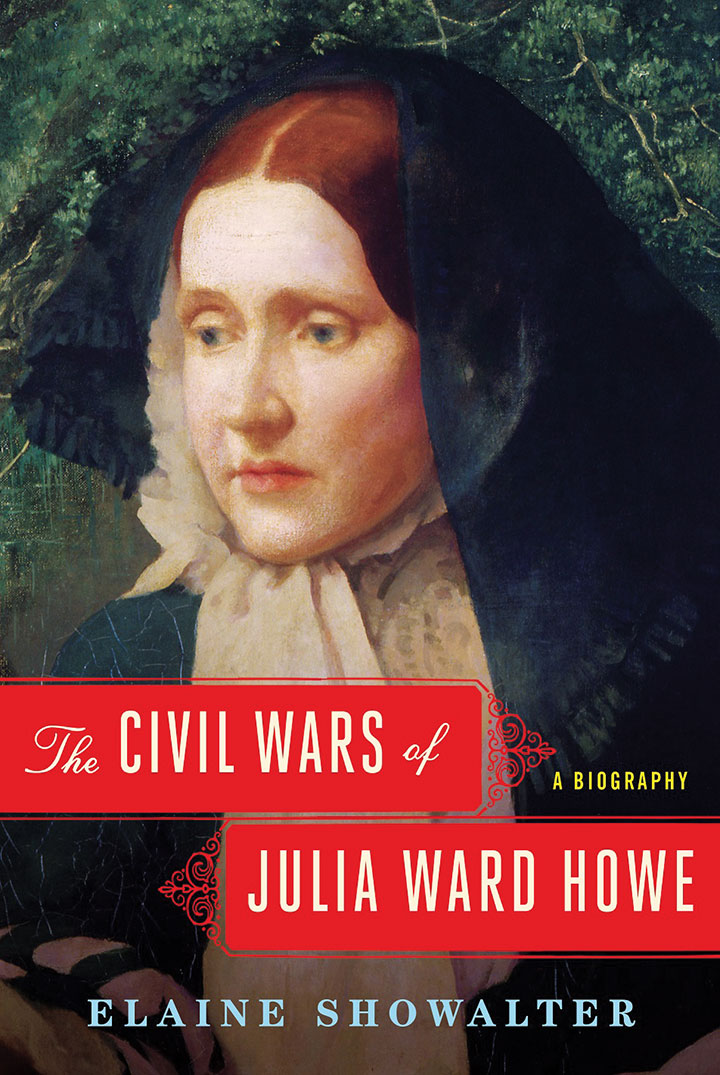
As Julia Ward Howe lay in a darkened Washington hotel room one gray morning in November 1861, lines of poetry “began to twine themselves” together in her mind. She “sprang out of bed” and furiously wrote down a series of stanzas. They began: “Mine eyes have seen the glory of the coming of the Lord ... .”
This is the episode from Howe’s life that the public knows. But authoring “The Battle Hymn of the Republic” was just one moment in Howe’s dogged quest for self-determination. Elaine Showalter, the renowned feminist literary critic and a professor emerita of English at Princeton, narrates this quest, with its many accomplishments and devastating setbacks, in her new book, The Civil Wars of Julia Ward Howe.
Showalter discovered Howe’s story while writing A Jury of Her Peers: American Women Writers from Anne Bradstreet to Annie Proulx, her Truman Capote Award-winning work of feminist literary criticism. “I was captivated by her life,” Showalter says. “I wanted to tell her story for the 21st century.”
 The biography focuses on Howe’s unhappy 33-year marriage to Samuel Gridley Howe, a progressive abolitionist and pioneer in the education of the blind. Samuel was a staunch traditionalist when it came to marriage, and he sought to quash Julia’s independent spirit, feminist impulses, and intellectual ambitions. Julia soldiered on, secretly publishing her first book of poetry and hobnobbing with the likes of Charles Dickens and William Wordsworth, even while raising six children. “She was feisty,” Showalter says. “She was not a saint but a woman who liked to shop as much as she liked to read Spinoza.”
The biography focuses on Howe’s unhappy 33-year marriage to Samuel Gridley Howe, a progressive abolitionist and pioneer in the education of the blind. Samuel was a staunch traditionalist when it came to marriage, and he sought to quash Julia’s independent spirit, feminist impulses, and intellectual ambitions. Julia soldiered on, secretly publishing her first book of poetry and hobnobbing with the likes of Charles Dickens and William Wordsworth, even while raising six children. “She was feisty,” Showalter says. “She was not a saint but a woman who liked to shop as much as she liked to read Spinoza.”
Howe, the first woman elected to the American Academy of Arts and Letters, is an apt subject for Showalter, whose many published works have explored and elevated the literature of American women. The New York Times called Showalter’s latest effort “riveting and frankly distressing.”
When Samuel died, Howe wrote in her diary, “Began my new life today.” She spent her remaining 34 years fearlessly campaigning for women’s suffrage and lending her voice to the early American feminist movement. Showalter’s biography brings Howe a little of the glory she so famously put into the verses of her American anthem. The truth of Julia Ward Howe’s story is finally marching on.











No responses yet